iboga retreat Canada 🇨🇦
Canada, a land of vast landscapes and cultural richness, now offers authentic Iboga retreats where ancestral Bwiti wisdom meets modern approaches to well-being. Discover carefully selected retreat centers across Canada, chosen for their tradition, integrity, and professionalism.
Guided by certified practitioners and experienced facilitators, these centers provide a safe and profound Iboga journey. Whether you seek personal transformation, spiritual discovery, or ancient healing, explore the Iboga retreat opportunities in Canada and beyond, and find the path that best resonates with your healing intentions.
Healing from trauma and addiction
Deep spiritual reconnection
Lasting personal transformation
Rigorous safety protocols tailored to each participant

discover iboga retreat in Canada
what's included in iboga retreats in Canada
🌿 Holistic Iboga Healing in Canada
Experience authentic Bwiti Iboga retreats in Canada, where sacred rituals are aligned with your personal healing intentions. Each journey is guided by certified Iboga facilitators with years of experience, ensuring both integrity and compassion.
- Authentic Bwiti practices rooted in tradition
- Professional guidance from trained facilitators
- Comprehensive safety and medical protocols
🏞️ Sanctuaries of Transformation
Our Iboga retreat centers in Canada are located in peaceful, natural settings designed to enhance the therapeutic power of Iboga. Surrounded by forests, lakes, and mountains, these safe sanctuaries create the perfect environment for deep inner exploration.)
- Retreat locations immersed in pristine Canadian nature
- Safe and tranquil spaces for spiritual and emotional growth
- Environments that support profound healing experiences
🧠 A Complete Therapeutic Journey
Your Iboga experience in Canada goes beyond the ceremony itself.
- Each retreat offers full preparation, personalized support, and integration tools to help you embody the transformation long after your journey ends.
- Essential preparation for clarity and readiness
- Small, intimate groups for personalized attentionPost-ceremony integration support to sustain healing
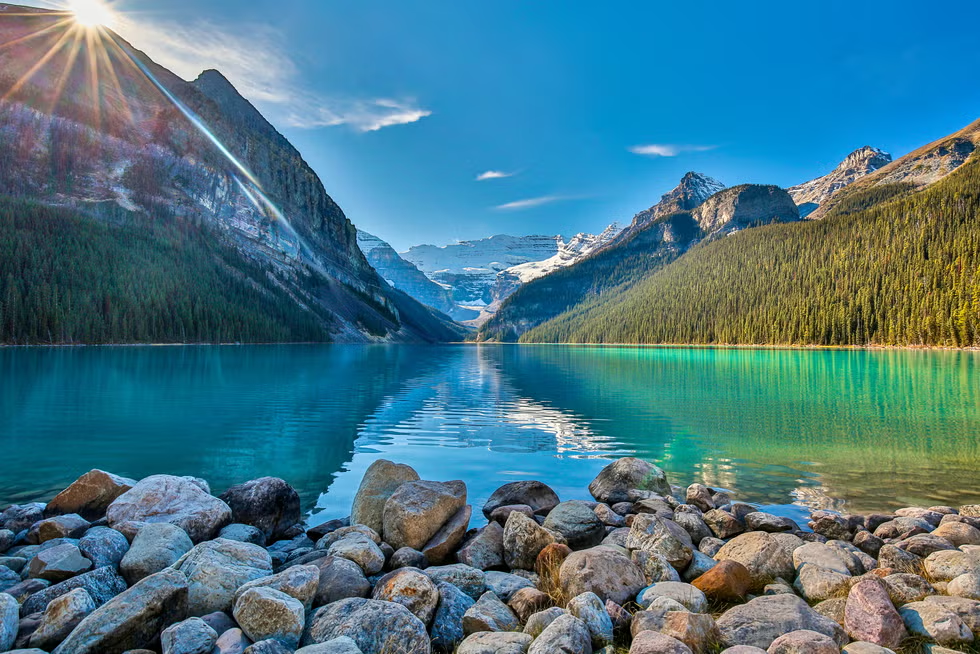
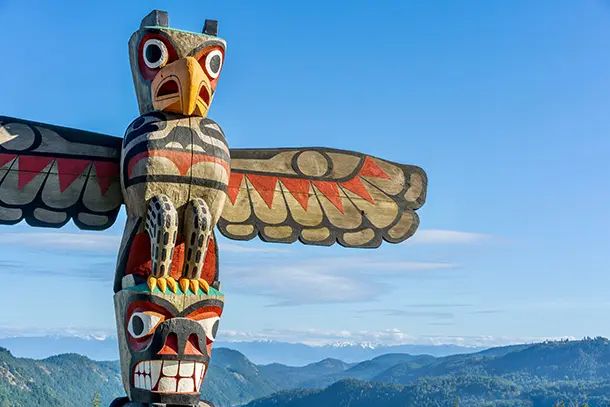
Canada’s Indigenous Wisdom and the Global Journey of Iboga
Canada is a nation celebrated for its cultural richness, vast landscapes, and evolving commitment to reconciliation with Indigenous Peoples. Against this backdrop, the increasing global attention to sacred medicines—like iboga—sparks essential discussions about spiritual freedom, cultural respect, and ethical integration.
Guardianship and Indigenous Wisdom
Indigenous Nations in Canada, First Nations, Métis, and Inuit, have long understood that spirituality is inseparable from day-to-day life and intimately tied to land, relationships, and ancestral responsibility.
Canada’s Truth and Reconciliation Commission affirmed this importance by advocating for inclusive education that incorporates Indigenous spiritual worldviews, including ceremonies and spiritual leaders, as vital components of healing and reconciliation in schools.
Similarly, in Gabon’s Bwiti tradition, iboga is regarded not merely as a plant, but as a sacred bridge, a medicine that guides communal healing, initiation, and connection with the spirit world. As iboga gains wider recognition for its healing potential, it brings with it a responsibility to honor its roots and the spiritual traditions from which it emerged.
Religious Freedom in the Canada
Ethical Stewardship of Sacred Medicine
The global embrace of sacred plants like iboga comes with a moral imperative: to protect their spiritual and cultural origins. In Canada, efforts are underway across disciplines, health, policy, and education, to formally integrate and protect traditional Indigenous medicine practices. A multidisciplinary consensus recently published in The Lancet Regional Health outlines key ethical principles for incorporating traditional Indigenous medicine into Western healing practices, such as reciprocity, consent, and community engagement.
These guiding principles are vital in ensuring that as psychedelics like iboga enter the Canadian healing space, they do so with integrity, honoring the knowledge holders and cultural systems that safeguard their sacredness.
Moving Forward with Respect and Responsibility
As iboga becomes recognized as a tool for healing, spiritual exploration, or addiction recovery, it raises critical questions in a Canadian context: How do we engage with powerful medicines responsibly? How do we align matters of spiritual freedom with reconciliation, Indigenous knowledge sovereignty, and ethical reciprocity?
In Canada’s evolving landscape, where schools begin with land acknowledgments, and spiritual traditions are increasingly honored in diverse public spaces—there is fertile ground for reframing sacred medicine journeys. But this requires more than acknowledgement—it demands genuine ethical collaboration, ongoing dialogue with Indigenous communities, and steadfast respect for ceremony as stewardship, not commodification.
Canada stands at a crossroads where Indigenous spiritual traditions are being recognized within public life and policy. Amid this shift, engaging with iboga offers an opportunity: to model how spiritual freedom and healing can be pursued through frameworks rooted in ethical reciprocity, respect for Indigenous sovereignty, and grounded spiritual guidance.
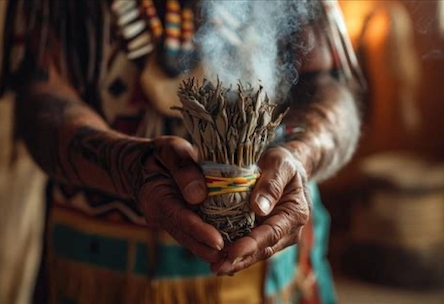
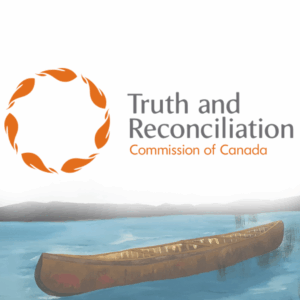
PROTECTING TRADITION, SHAPING A NEW PATH
The map of Indigenous rights and spiritual recognition across Canada shows that while federal and provincial frameworks exist, much of the protection of spiritual freedom is expressed locally, through reconciliation efforts, land acknowledgments, and community-led initiatives.
A Nation of Resilience and Reconciliation
Canada’s story is one of resilience and renewal. From First Nations, Inuit, and Métis Peoples who have safeguarded the land and spirit for millennia, to contemporary movements for truth, justice, and healing, Canada is undergoing a transformation. The national Truth and Reconciliation Commission (TRC) has called on all sectors of society to honor Indigenous knowledge systems, including spiritual and healing practices.
The rising recognition of sacred plants and traditional medicines echoes this same spirit: an effort to reconnect with nature, spirit, and community in a world often shaped by disconnection.
The Path Ahead
Iboga retreats in Canada exist within a complex legal and cultural landscape. While iboga is not formally recognized within Canada’s healthcare system, growing discussions in medicine, policy, and education highlight the need to integrate Indigenous healing frameworks and global plant medicine traditions with respect and responsibility.
Some Canadians seek these experiences abroad, in places like Gabon, where iboga is protected within its ancestral tradition. Others are working to create pathways within Canada that align with reconciliation, ethical reciprocity, and Indigenous sovereignty.
What unites them is a shared knowledge: iboga is more than a plant, it is a sacred doorway to wisdom, healing, and spiritual truth. By honoring it, we not only support personal healing but also acknowledge the guardians who have carried these traditions for generations.
At Bwiti House, we believe the future of iboga in Canada depends on walking with respect: respect for Indigenous origins, respect for spiritual freedom, and respect for the land itself.

.webp)

The essentials of what an iboga retreat in canada 🇨🇦✨
Apply now to receive more information.
Included in your retreat
2 Iboga ceremonies
Lodging
Delicious & Nourishing Meals
Additional Herbal Healings As Needed
Ancestral Teachings of Bwiti Missoko by the Fire
Traditional Spiritual Shower
Traditional Sauna
Aftercare session under request
All-Inclusive Experience


Why choose an iboga retreat in Canada ?
✅ Exceptional Natural Environments
From the majestic Rockies to the tranquil boreal forests and the pristine coastlines of the Pacific and Atlantic, Canada offers retreat settings of unparalleled beauty. These landscapes provide a sanctuary for healing, renewal, and profound inner reconnection.
✅ Highly Qualified Practitioners
Canadian retreats are guided by facilitators trained in authentic Bwiti tradition and complemented by expertise in psychotherapy, holistic health, and integrative wellness practices. Their unique blend of cultural wisdom and professional care ensures a deeply supportive experience.
✅ Quality Infrastructure
Retreat centers in Canada balance immersion in untouched nature with comfortable, modern facilities. Participants can focus fully on their healing journey while enjoying safe, serene, and well-equipped environments.
✅ Opportunities for Post-Retreat Exploration
Canada’s cultural diversity and breathtaking landscapes, whether Indigenous heritage sites, vibrant cities, or national parks, offer countless opportunities for gentle post-retreat integration, allowing your Iboga experience to unfold in an inspiring and respectful context.
From Gabon to the World:
Authentic Bwiti Guidance
Our providers are deeply trained spiritual guides, initiated at the very source of Bwiti practice under the direct mentorship of master shamans. Their preparation includes years of rigorous apprenticeship and full cultural immersion in Gabon, within authentic ancestral lineages such as that of Moughenda Mikala.
This transmission of knowledge is exceptionally rare, only a select few practitioners worldwide are entrusted with the blessing and teachings required to lead ceremonies in alignment with original Bwiti protocols.
Rooted in sacred tradition yet attuned to the needs of modern seekers, our providers embody a unique balance: honoring ancient wisdom while offering sensitive guidance that supports Western participants on their journey of healing, transformation, and personal growth.
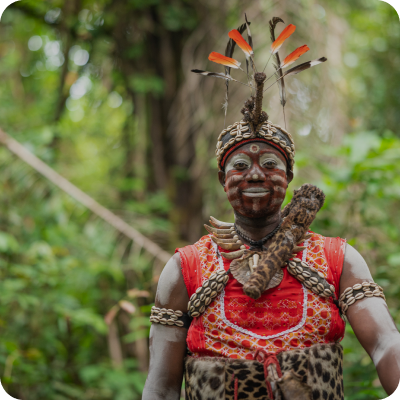
Admission Process ✨
🌿 Applications for iboga retreats in Canada are accepted on a rolling basis. Each cohort comprises a maximum of 8 candidates, meticulously selected.


Here is the list of all documents you need to provide during the application process:
EKG
Liver Function Tests
Application Form
Discovery Call
Get a Pay By Link to Secure Your Spot
Health Assessment
to the session dates.
Visa Application + Official Confirmation
Frequently asked questions
🌿 Everything You Need to Know About iboga retreat in USA ✨
Still have a questions in mind? contact us directly on WhatsApp!
Click here
In Canada, iboga retreat stays typically range from 5 to 9 days, encompassing thorough preparation, the ceremony itself, and the first stage of integration. Daily costs generally range between 550 and 3,000 CAD, with total investments usually falling between 2,500 and 8,000 CAD. Pricing reflects the quality of guidance, the natural setting, and the comfort level of the retreat facilities.
These rates generally cover accommodation, nutritious meals, iboga ceremonies, and complementary practices such as yoga, meditation, and integrative therapies. Many centers also provide airport transfers and pre-retreat consultations, ensuring participants feel supported and prepared from the very beginning.

Retreat Structure in Canada
Iboga retreats in Canada typically last 5 to 9 days and welcome small, intimate groups of 4 to 8 participants, ensuring highly personalized guidance in serene natural settings across the country.
🌿 Arrival Day
Participants are received in peaceful Canadian landscapes—whether near forests, mountains, or lakes—where they can rest after their journey. An opening circle allows everyone to connect, share intentions, and settle into the retreat with warmth and care.
🌿 Preparation and Personal Work
The following day is dedicated to grounding and mental preparation. Each participant spends one-on-one time with their guide to clarify intentions and begin their therapeutic journey.
🌿 Exploration and Integration
This stage focuses on assimilating initial experiences while allowing space for rest. The team remains available for support, while participants enjoy the tranquility of the natural surroundings.
🌿 Purification and Recovery
A gentle day designed to restore balance and strength. Many Canadian retreats offer complementary activities such as forest bathing, meditation by lakes or rivers, or purification rituals inspired by local Indigenous traditions (with respect and permission).
🌿 Deepening
Participants continue their inner journey, often preceded by private meetings with guides to refine intentions. This stage helps integrate teachings more fully and strengthen the transformation process.
🌿 Final Integration
The last days are devoted to reflection and preparing for reintegration into daily life. Guided group discussions and personal coaching help participants apply the retreat’s insights to their everyday reality.
🌿 Departure
The retreat concludes with a shared closing ceremony. Participants leave with clarity, practical tools, and renewed energy to sustain their healing journey back home.

Iboga in Canada: A Sacred Path to Healing
Iboga, a sacred plant rooted in Gabonese spiritual traditions, is now offered in carefully guided therapeutic retreats across Canada. Its healing potential touches every dimension of the human experience mental, emotional, and physical.
🌿 Mental Clarity and Transformation
On a cognitive level, iboga supports a profound inner journey that helps dismantle limiting patterns and beliefs. Participants often describe gaining a clearer perspective on their lives, along with a renewed sense of purpose and the capacity to make more authentic choices.
🌿 Addiction Recovery
Iboga’s active alkaloids show promising effects on the brain’s neural pathways, particularly those linked to addictive behaviors. Whether related to substances or destructive thought patterns, iboga may help “reset” these pathways and open space for healthier ways of living.
🌿 Emotional Healing
Equally transformative is iboga’s ability to access and release deeply buried emotional wounds. By bringing painful memories into awareness for resolution, this process often results in feelings of lightness, balance, and inner harmony.
🌿 Safe and Professional Retreat SettingsTrusted iboga retreat centers in Canada provide safe, supportive environments led by trained professionals. Within these sanctuaries, participants are guided through preparation, ceremony, and integration, allowing iboga’s therapeutic potential to initiate lasting transformation.
